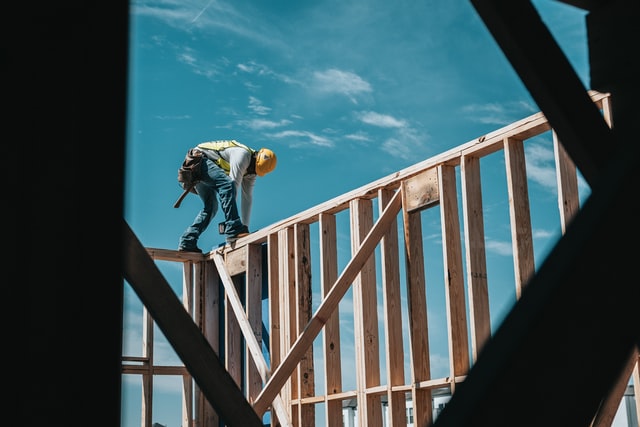
Picture from Unsplash
Many people aspire to own a brand new home that has not had previous owners. Taking time to carry out renovations is a taxing commitment in terms of time, money, and the expertise needed to see them through, which makes pre-owned homes a no-go zone for many individuals. It is indeed very appealing to move into the perfect complete home, but this luxury comes with its fair share of demands. Below are the top things that are a must-do when buying a brand new home.
- Get the Right Lender
It is critical to get the right financing that will not strain you when purchasing your brand-new home. Asking several lenders about their rates can save you a lot of money in terms of interest. There are several options available for prospective homeowners and each option has its pros and cons. While it would not be a bad idea to shop for mortgages in financial institutions such as credit unions and banks which have different interest rates, casting your net wider and considering other options such as mortgage brokers or correspondent lenders is of the essence. The loan processing fees and the procedures surrounding the issuance of the loan, such as the provision of collateral, can add an extra unnecessary financial burden on you; hence putting this into consideration is of the essence.
- Thorough Home Inspection
Many individuals may deem this unnecessary as they are not moving into a pre-owned home. However, a home inspection for new construction is not something to be swept under the rug as it can save you hefty adjustment and repair costs in the future. Getting a professional home inspector or a structural engineer to evaluate the various components of your soon-to-be home should be a top priority. It is more likely that a newly built home will have several necessities missing as compared to a home that had previous owners. For instance, ventilation may be missing or is inadequate, the roof may be incorrectly installed, and other various structural issues that could weigh in on you in the future. It is impossible to pinpoint these issues on your own through a visual inspection. Considering the magnitude of the investment you are about to make, it is a no-brainer that a home inspection is an expense that should be budgeted for and cannot afford to be skipped.
- Self-Inspection
When buying a home in a particular development, carrying out a visual inspection on your own can come in handy in informing your purchase decision. While seeking the services of a professional, as earlier mentioned, is of the essence, there are some obvious things that you can figure out on your own without engaging a home inspector. These can be referred to as; visual red flags. If something feels out of place, there’s a strange smell, or you can intuitively sense that something isn’t right, it is important not to downplay it.
- Builder’s Past Projects
The quality of a builder’s past projects should tell you whether the investment you are about to make is worthwhile. Conducting your due diligence and physically evaluating past projects should either instill confidence in you or should aid in re-evaluation, through taking a step back to consider whether you should proceed with the purchase. The builder’s quality of work should match or exceed your expectations.
- Project Reputation
It is necessary to find out from residents of the neighborhood you are planning to settle in whether a developer is on good terms with the community. Your real estate agent can also assist you to figure this out. Issues to do with zoning or other controversies could have future implications on the investment. Despite the project quality and attractiveness, paying attention to this could save you a lot.
- Number of Units Sold in a Development
Two scenarios tend to play out, and each has an implication tied to it. Firstly, the units could be fast-moving which implies that you could potentially get a good deal for your soon-to-be home as the developers want to rid themselves of the last remaining units. On the other hand, the units could be slow-selling, and consulting a real estate expert on the possible implications is of the essence.
Purchasing a newly built home is not as straightforward as many assume. Keeping in mind the above considerations is vital as buying a home is one of the biggest investments you make in your life. Engaging professionals such as real estate agents and home inspectors should always be the case throughout your purchase journey.


